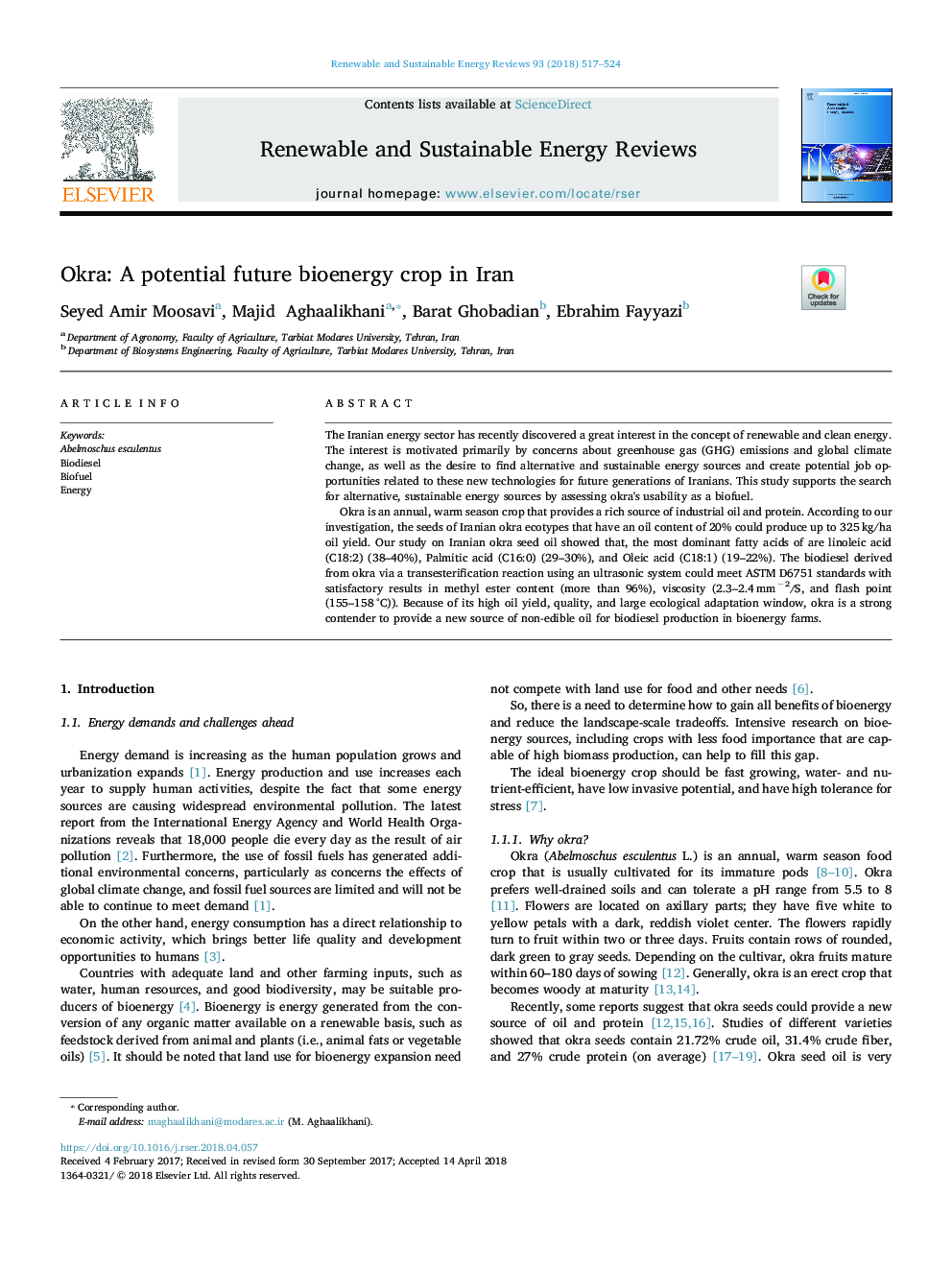| Article ID | Journal | Published Year | Pages | File Type |
|---|---|---|---|---|
| 8110745 | Renewable and Sustainable Energy Reviews | 2018 | 8 Pages |
Abstract
Okra is an annual, warm season crop that provides a rich source of industrial oil and protein. According to our investigation, the seeds of Iranian okra ecotypes that have an oil content of 20% could produce up to 325â¯kg/ha oil yield. Our study on Iranian okra seed oil showed that, the most dominant fatty acids of are linoleic acid (C18:2) (38-40%), Palmitic acid (C16:0) (29-30%), and Oleic acid (C18:1) (19-22%). The biodiesel derived from okra via a transesterification reaction using an ultrasonic system could meet ASTM D6751 standards with satisfactory results in methyl ester content (more than 96%), viscosity (2.3-2.4â¯mmâ2/S, and flash point (155-158â¯Â°C)). Because of its high oil yield, quality, and large ecological adaptation window, okra is a strong contender to provide a new source of non-edible oil for biodiesel production in bioenergy farms.
Related Topics
Physical Sciences and Engineering
Energy
Renewable Energy, Sustainability and the Environment
Authors
Seyed Amir Moosavi, Majid Aghaalikhani, Barat Ghobadian, Ebrahim Fayyazi,
